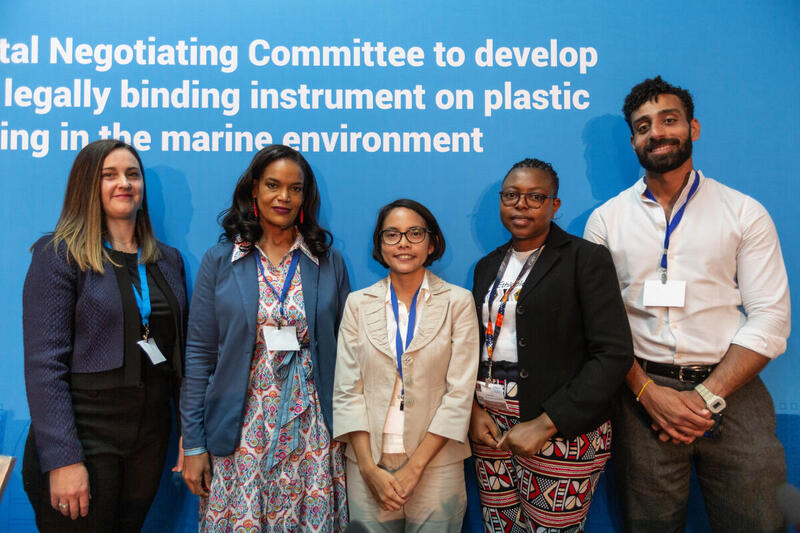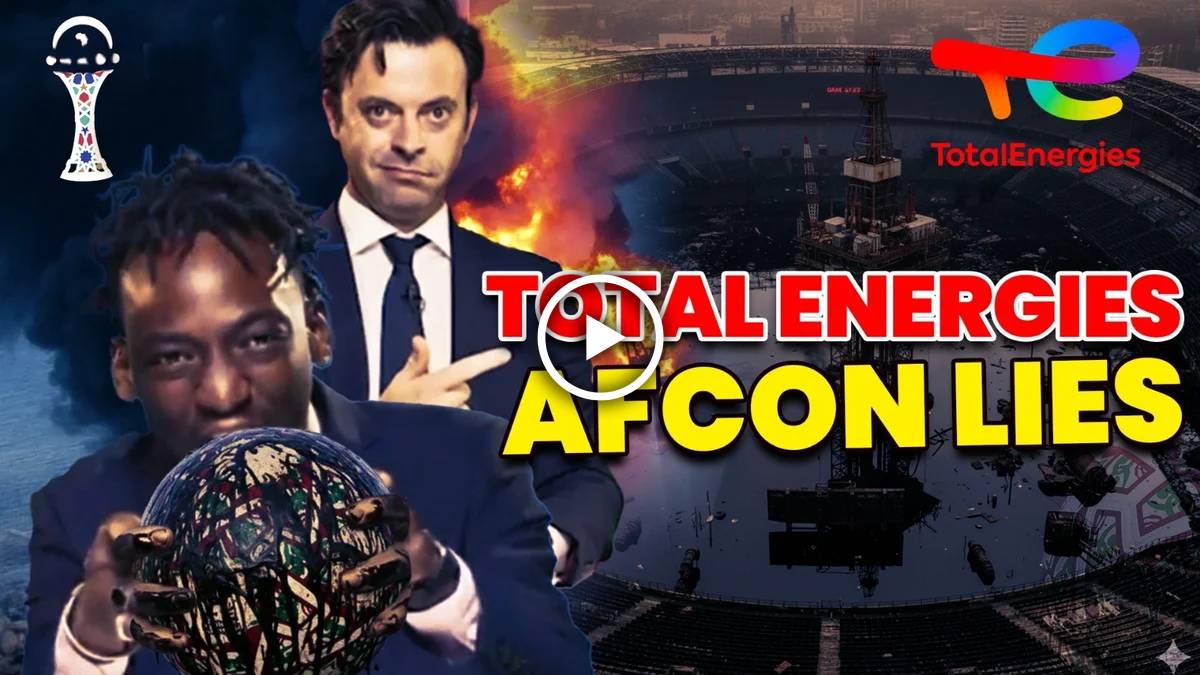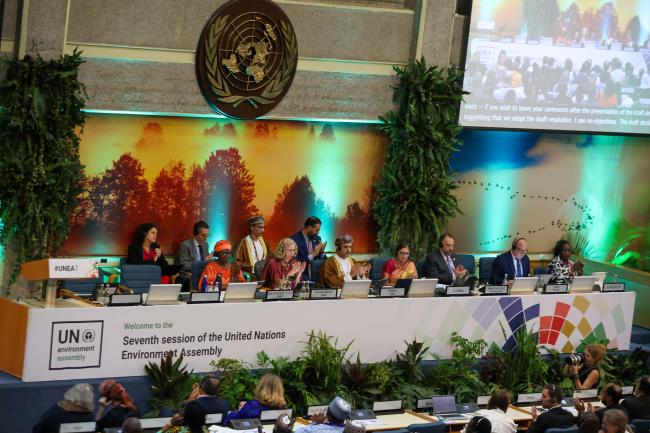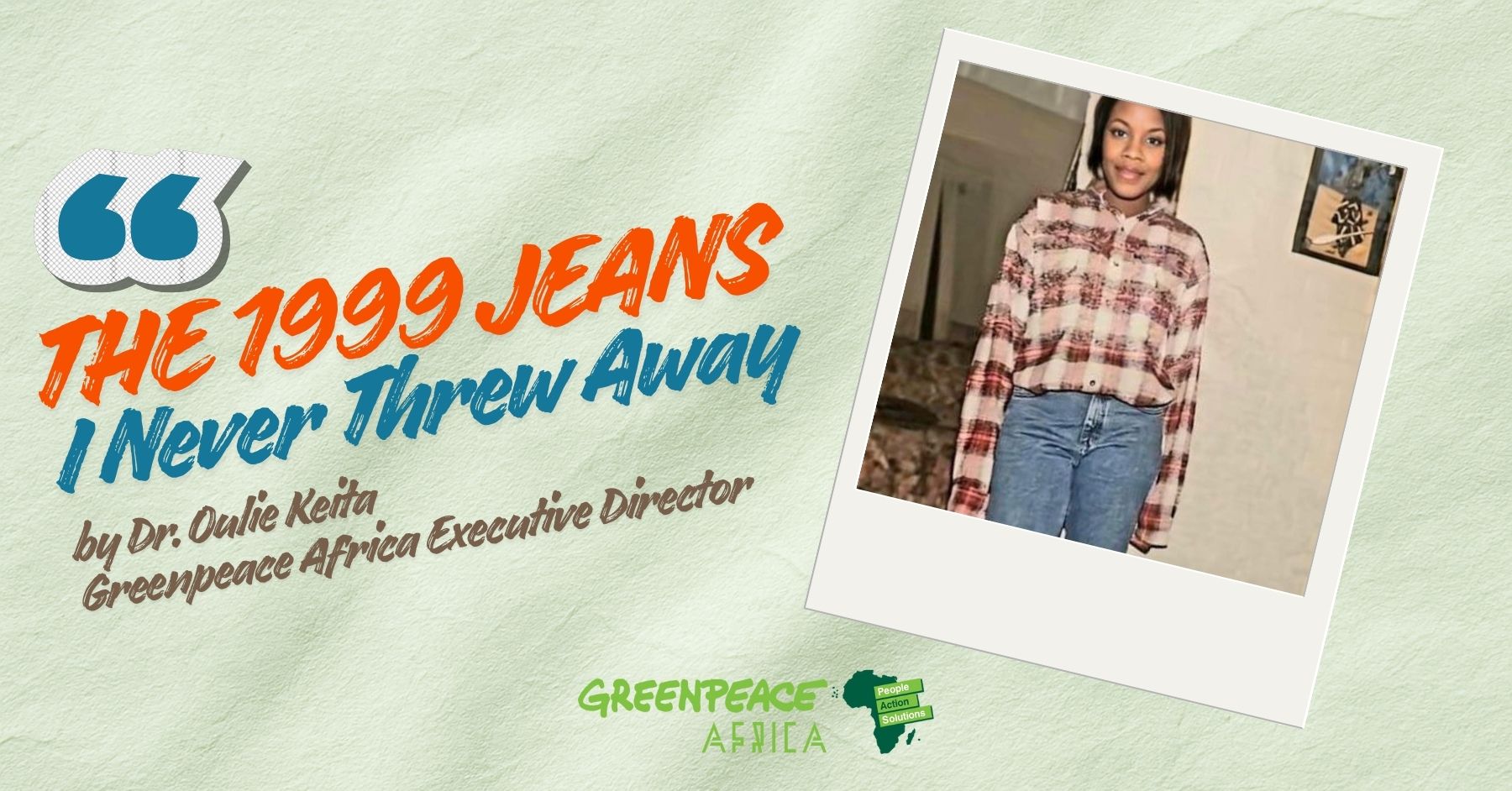Ottawa, Canada 23 April 2024 – Greenpeace International and the Descendants Project urge member states to watch out for mischief during negotiations. It is critical that the fourth Intergovernmental Negotiating Committee (INC4) meeting secures an ambitious Global Plastics Treaty that cuts plastic production and ends single-use plastic.

At a press conference held Tuesday in Ottawa, Greenpeace Africa demands FOUR key actions from member states. They should:
- Retain the option for a global target to reduce primary plastic polymer production in the text. Ambitious countries must not concede to bad-faith countries in this area.
- Retain the option for targets for reduction, reuse, and refill in the text.
- Move into the actual negotiation of the treaty text. A first step will be states working to consolidate the many options in the revised Zero Draft.
- Ensure there is a mandate to create the first draft of the treaty text, which was one of the failures of INC3 held last November 2023 in Nairobi, Kenya.
Hellen Kahaso Dena, Project Lead for the Pan-African Plastic Project has said:
“The clock is ticking, we are now in the penultimate stage of the treaty negotiations, yet little progress has been made towards tackling this global crisis. We want to see world leaders making real progress on ending plastic pollution by cutting plastic production. Otherwise, we risk ending up with a waste management treaty contrary to UNEA 5/14 resolution to end plastic pollution.”
Highlighting the role of Canada as the host country for this round of talks, Sarah King, Head of Oceans and Plastics Campaigns for Greenpeace Canada, said:
“As host country, Canada can show leadership by setting the right tone for the talks ahead and working with other high ambition countries to champion the strongest possible measures. Public calls for bold action are getting louder, and this is Canada’s moment to heed those calls and help move us towards the impactful Plastics Treaty outcome people and the planet desperately need.”
Jo Banner of The Descendants Project, said:
“As a resident of Louisiana’s Cancer Alley, I experience first-hand the devastating impact plastic production has on the health and environment of frontline communities. A treaty failing to limit plastic production is a continuation of our country’s deadly tradition, which harks back to the days of the enslavement of my ancestors, of enriching others through the sacrificing of Black bodies, other people of color, and low-income communities.”
Earlier this month, a Greenpeace International poll report revealed that 8 out of 10 people support cutting plastic production. The survey, which was conducted across 19 countries indicates overwhelming public backing for measures aimed at ending single-use plastics and promoting reuse-based solutions.
Plastic production and consumption has tremendously increased globally over the past decade reaching unsustainable levels necessitating significant and collective efforts to address the key drivers of plastic pollution. In Africa, Plastics have infiltrated our lives, our streets, body organs, food, soil, ecosystems, and our waterways. To maintain a livable planet and an equitable future for all, the treaty must cut plastic production by 75% by 2040 and transition to a reuse-based economy.
Notes:
Greenpeace demands for a Global Plastics Treaty can be found here.
Photos and videos are available from the Greenpeace Media Library.
Contacts:
Ferdinand Omondi, Communication and Story Manager: [email protected], Cell: +254 722 505 233
Greenpeace Africa Press Desk: [email protected]
Follow @greenpeaceafric on Twitter for our latest press releases.



